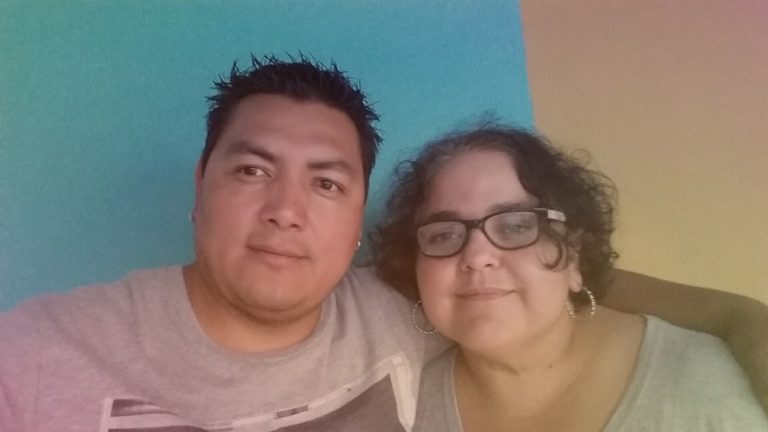The U.S. Supreme Court ruled against a Los Angeles woman who argued that her Salvadoran husband’s constitutional rights to marriage and due process were violated when he was denied an immigration visa because of his tattoos. The couple said the tattoos, which depicted Sigmund Freud, theater masks, tribal designs with claw prints and the Catholic Our Lady of Guadalupe, were wrongly interpreted as being related to the transnational gang MS-13.
In a 6-3 vote on June 21, the justices ruled that Sandra Muñoz, an American citizen and civil rights attorney, “did not have a fundamental liberty interest in the admission of her noncitizen spouse,” effectively upholding a 2015 visa denial that separated her from her husband, Luis Asencio-Cordero, for nearly a decade.
Asencio-Cordero’s visa was initially denied during his final interview in El Salvador by a consular officer who stated that there were “reasonable grounds to believe” that he might engage in “illegal activity,” despite having no criminal record in El Salvador or the U.S. Asencio-Cordero reasoned that he was denied a visa based on an erroneous assumption that he was affiliated with MS-13, so he renounced any affiliation with the gang and appealed to the State Department, which upheld the consulate’s decision.
The couple then filed a lawsuit against the department in 2017, claiming that officers violated Muñoz’s constitutional freedoms “by failing to give sufficient reasons why Asensio-Cordero was inadmissible due to ‘illegal activity’.”
Two years into the federal court battle, the couple discovered that Asencio-Cordero’s application had been denied in part because of his tattoos. According to the couple’s attorney, Eric Lee, both Asencio-Cordero and a court-approved gang tattoo expert denied that the tattoos had any connection to MS-13.
Justice Amy Coney Barrett, writing for the court, said Munoz’s argument “fails on the threshold” because it is based on an unspecified right that she has to bring her noncitizen spouse into the United States.
“To establish that premise, she must show that the rights asserted are ‘deeply rooted in the history and traditions of this nation,'” the Trump-appointed judge wrote.
In a dissenting opinion signed by Justices Elena Kagan and Ketanji Brown Jackson, Justice Sonia Sotomayor expressed concern about the apparent reduction of fundamental marriage rights, beginning her statement with a quote from the landmark 2015 ruling that legalized same-sex marriage: “Historically and traditionally, the right to marry is a fundamental right.”
Lee called the ruling “another shovel of dirt in the coffin of American democracy” in a statement, blamed the Biden administration for initially appealing the 2022 ruling by the 9th Circuit Court of Appeals that ruled in the couple’s favor, and noted the irony of the parole immigrant relief measure passed last week.
“It is truly ironic that if Mr. Asensio-Cordero had chosen to remain in seclusion rather than follow the legal process to obtain a green card all those years ago, he would have been eligible for the parole program the administration announced earlier this week,” Lee said.
“We are deeply dissatisfied with today’s ruling and the government’s conduct throughout this litigation, but we will never stop fighting to separate families.”

